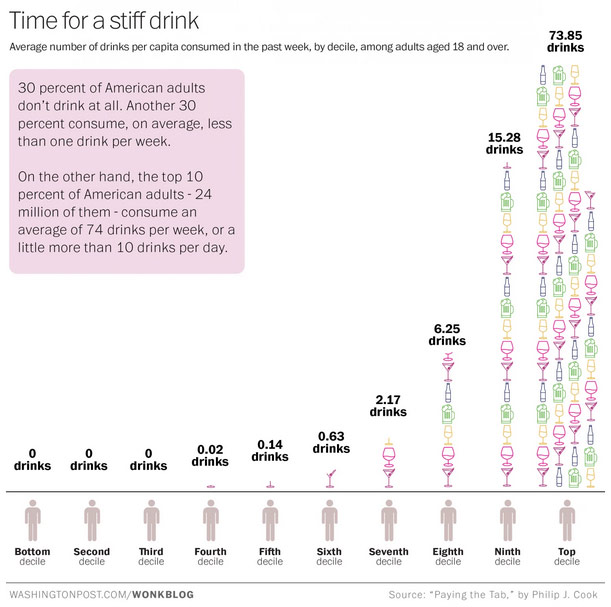One of the better things I’ve done with this blog was help popularize Nicholas Shackel’s “motte and bailey doctrine”. But I’ve recently been reminded I didn’t do a very good job of it. The original discussion is in the middle of a post so controversial that it probably can’t be linked in polite company – somewhat dampening its ability to popularize anything.
In order to rectify the error, here is a nice clean post on the concept that adds a couple of further thoughts to the original formulation.
The original Shackel paper is intended as a critique of post-modernism. Post-modernists sometimes say things like “reality is socially constructed”, and there’s an uncontroversially correct meaning there. We don’t experience the world directly, but through the categories and prejudices implicit to our society; for example, I might view a certain shade of bluish-green as blue, and someone raised in a different culture might view it as green. Okay.
Then post-modernists go on to say that if someone in a different culture thinks that the sun is light glinting off the horns of the Sky Ox, that’s just as real as our own culture’s theory that the sun is a mass of incandescent gas a great big nuclear furnace. If you challenge them, they’ll say that you’re denying reality is socially constructed, which means you’re clearly very naive and think you have perfect objectivity and the senses perceive reality directly.
The writers of the paper compare this to a form of medieval castle, where there would be a field of desirable and economically productive land called a bailey, and a big ugly tower in the middle called the motte. If you were a medieval lord, you would do most of your economic activity in the bailey and get rich. If an enemy approached, you would retreat to the motte and rain down arrows on the enemy until they gave up and went away. Then you would go back to the bailey, which is the place you wanted to be all along.
So the motte-and-bailey doctrine is when you make a bold, controversial statement. Then when somebody challenges you, you claim you were just making an obvious, uncontroversial statement, so you are clearly right and they are silly for challenging you. Then when the argument is over you go back to making the bold, controversial statement.
Some classic examples:
1. The religious group that acts for all the world like God is a supernatural creator who builds universes, creates people out of other people’s ribs, parts seas, and heals the sick when asked very nicely (bailey). Then when atheists come around and say maybe there’s no God, the religious group objects “But God is just another name for the beauty and order in the Universe! You’re not denying that there’s beauty and order in the Universe, are you?” (motte). Then when the atheists go away they get back to making people out of other people’s ribs and stuff.
2. Or…”If you don’t accept Jesus, you will burn in Hell forever.” (bailey) But isn’t that horrible and inhuman? “Well, Hell is just another word for being without God, and if you choose to be without God, God will be nice and let you make that choice.” (motte) Oh, well that doesn’t sound so bad, I’m going to keep rejecting Jesus. “But if you reject Jesus, you will BURN in HELL FOREVER and your body will be GNAWED BY WORMS.” But didn’t you just… “Metaphorical worms of godlessness!”
3. The feminists who constantly argue about whether you can be a real feminist or not without believing in X, Y and Z and wanting to empower women in some very specific way, and who demand everybody support controversial policies like affirmative action or affirmative consent laws (bailey). Then when someone says they don’t really like feminism very much, they object “But feminism is just the belief that women are people!” (motte) Then once the person hastily retreats and promises he definitely didn’t mean women aren’t people, the feminists get back to demanding everyone support affirmative action because feminism, or arguing about whether you can be a feminist and wear lipstick.
4. Proponents of pseudoscience sometimes argue that their particular form of quackery will cure cancer or take away your pains or heal your crippling injuries (bailey). When confronted with evidence that it doesn’t work, they might argue that people need hope, and even a placebo solution will often relieve stress and help people feel cared for (motte). In fact, some have argued that quackery may be better than real medicine for certain untreatable diseases, because neither real nor fake medicine will help, but fake medicine tends to be more calming and has fewer side effects. But then once you leave the quacks in peace, they will go back to telling less knowledgeable patients that their treatments will cure cancer.
5. Critics of the rationalist community note that it pushes controversial complicated things like Bayesian statistics and utilitarianism (bailey) under the name “rationality”, but when asked to justify itself defines rationality as “whatever helps you achieve your goals”, which is so vague as to be universally unobjectionable (motte). Then once you have admitted that more rationality is always a good thing, they suggest you’ve admitted everyone needs to learn more Bayesian statistics.
6. Likewise, singularitarians who predict with certainty that there will be a singularity, because “singularity” just means “a time when technology is so different that it is impossible to imagine” – and really, who would deny that technology will probably get really weird (motte)? But then every other time they use “singularity”, they use it to refer to a very specific scenario of intelligence explosion, which is far less certain and needs a lot more evidence before you can predict it (bailey).
The motte and bailey doctrine sounds kind of stupid and hard-to-fall-for when you put it like that, but all fallacies sound that way when you’re thinking about them. More important, it draws its strength from people’s usual failure to debate specific propositions rather than vague clouds of ideas. If I’m debating “does quackery cure cancer?”, it might be easy to view that as a general case of the problem of “is quackery okay?” or “should quackery be illegal?”, and from there it’s easy to bring up the motte objection.
Recently, a friend (I think it was Robby Bensinger) pointed out something I’d totally missed. The motte-and-bailey doctrine is a perfect mirror image of my other favorite fallacy, the weak man fallacy.
Weak-manning is a lot like straw-manning, except that instead of debating a fake, implausibly stupid opponent, you’re debating a real, unrepresentatively stupid opponent. For example, “Religious people say that you should kill all gays. But this is evil. Therefore, religion is wrong and barbaric. Therefore we should all be atheists.” There are certainly religious people who think that you should kill all gays, but they’re a small fraction of all religious people and probably not the ones an unbiased observer would hold up as the best that religion has to offer.
If you’re debating the Pope or something, then when you weak-man, you’re unfairly replacing a strong position (the Pope’s) with a weak position (that of the guy who wants to kill gays) to make it more attackable.
But in motte and bailey, you’re unfairly replacing a weak position (there is a supernatural creator who can make people out of ribs) with a strong position (there is order and beauty in the universe) in order to make it more defensible.
So weak-manning is replacing a strong position with a weak position to better attack it; motte-and-bailey is replacing a weak position with a strong position to better defend it.
This means people who know both terms are at constant risk of arguments of the form “You’re weak-manning me!” “No, you’re motte-and-baileying me!“.
Suppose we’re debating feminism, and I defend it by saying it really is important that women are people, and you attack it by saying that it’s not true that all men are terrible. Then I can accuse you of making life easy for yourself by attacking the weakest statement anyone vaguely associated with feminism has ever pushed. And you can accuse me if making life too easy for myself by defending the most uncontroversially obvious statement I can get away with.
So what is the real feminism we should be debating? Why would you even ask that question? What is this, some kind of dumb high school debate club? Who the heck thinks it would be a good idea to say “Here’s a vague poorly-defined concept that mind-kills everyone who touches it – quick, should you associate it with positive affect or negative affect?!”
Taboo your words, then replace the symbol with the substance. If you have an actual thing you’re trying to debate, then it should be obvious when somebody’s changing the topic. If working out who’s using motte-and-bailey (or weak man) is remotely difficult, it means your discussion went wrong several steps earlier and you probably have no idea what you’re even arguing about.
PS: Nicholas Shackel, original inventor of the term, weighs in.













